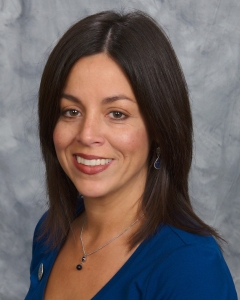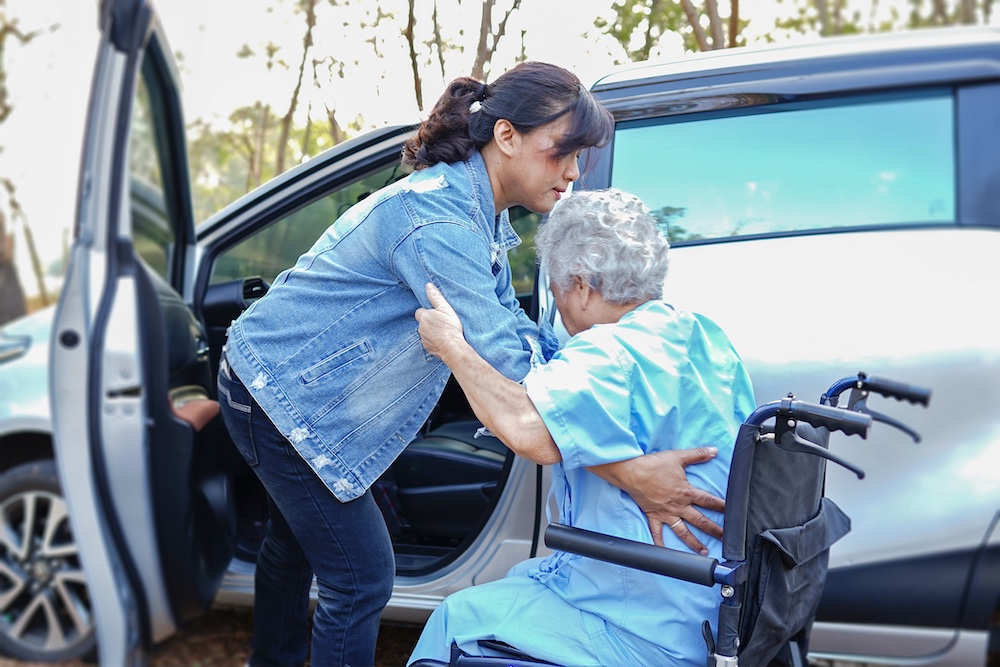By Caroline Dobuzinskis
Throughout this month, IWPR will be interviewing speakers appearing at our 25th anniversary celebration on May 22. Our esteemed speakers will share with us their own stories of accomplishment and perseverance, their perspectives on women’s advances, and their hopes for future progress.
Cindy Estrada has an impressive record of accomplishments. She is the first Latina elected as Vice President of the United Auto Workers (UAW) in 2010, a mother of twin boys, and a lifelong activist for workers’ rights. When Estrada speaks, her compassion and toughness are as notable as her accomplishments.
Estrada was inspired to join the labor movement from a young age. Growing up in Detroit, she was familiar with the auto workers in the city as they would come by her father’s bar. She also worked under iconic labor activist, César Chavez, during her early years as an activist organizing for farm workers in California. Following those experiences, she climbed the ladder at the UAW, working to create and implement a number of organizing strategies and becoming a resonating voice for women’s and workers’ rights.
It was in Detroit that Estrada ran her first campaign for auto workers. An auto factory that had been passed down to daughters of the original owner was being poorly managed and workers were facing low wages and unsafe conditions. Estrada acted as their voice and advocate because, as she said, the women already know how the auto plant could be run better. “Somebody told me a long time ago, my job is not to coddle the worker, but to show them how to fight back,” Estrada told me in an interview over the phone.
Maintaining a balance between work and family is very important to Estrada. “One of my [greatest accomplishments] is my kids,” she said. “And to still be able to do the work that I do and […] balance it with family. Every day, to figure out how to balance it.”
When I asked Estrada about obstacles along her career paths, she was quick to clarify that she had encountered “choices, not obstacles” on the way to her leadership role. At the same time, she understands the pressures that women can face when they choose. “Progress, not perfection,” said Estrada. “Really focusing on the things I should say no to because I want to be there for my kids.”
There were instances when Estrada chose time with family over work, including stepping down from a position at the UAW after having twins to spend more time at home. Estrada says there needs to be more acceptance and recognition for women who sometimes choose family over work.
As a union leader and a woman, Estrada is blazing trails. According to a 2007 IWPR report, while women’s membership in unions is increasing, men are much more likely to serve in leadership roles. As a woman advocating for a male-dominated industry, Estrada has at times encountered presumptions that she does not have the expertise, or met with men who only wanted to address the other men in the room. “Fortunately, in our union I work with men that are very progressive,” said Estrada. “And when I feel like something is not right, I can talk to them.”
When it comes to the future of women, Estrada strongly believes that women need to take a seat at the table in order to be heard, echoing similar messages from women leaders like Sheryl Sandberg. “I think women are taught that we need to do more [in order to] to take that seat at the table. But it is better for our community [for women] to be there. Our communities need the soulfulness, the intelligence, the wisdom of the women at the table.”
The actions of women alone are not all that are required for equality, and Estrada recognizes that movements and policies supporting women are essential to their empowerment. “We need paid family and medical leave,” said Estrada. “That’s why unions are so important. Women belong in the labor movement because it will be critical to their advancement.”
Estrada says mentoring is also one of the keys to opening doors for women, giving them the opportunity to contribute to the conversation and to lead—which is why mentoring is also one of the UAW’s main goals. “I wouldn’t be here today if it weren’t for the men and women who mentored me.”
You can hear Cindy Estrada speak at IWPR’s May 22 anniversary celebration, “Making Research Count for Women: Launching the Next 25 Years.”
To view more of IWPR’s research, visit IWPR.org




